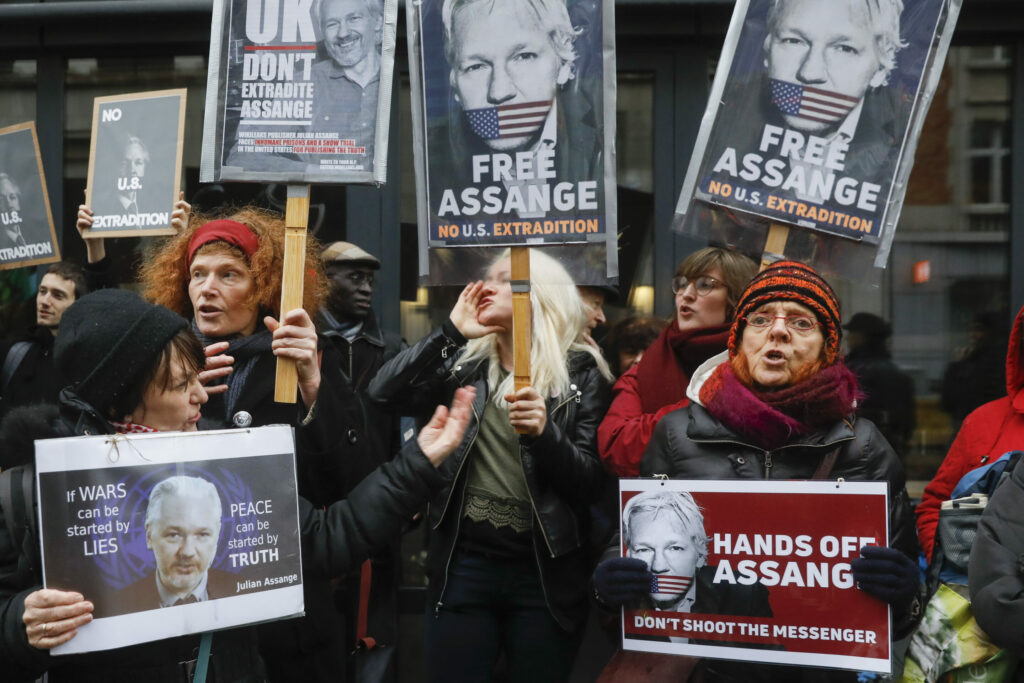A 'Free Assange' demonstration outside the US Embassy on Tuesday morning will coincide with the imprisoned journalist’s final hearing for his appeal against extradition from the UK to the US.
The Belgian branch of the Free Assange Committee and other supporters will gather on Boulévard du Régent at 10:00 on 20 February to call for the release of Australian journalist and Wikileaks founder Julian Assange, currently detained in Belmarsh, a high-security prison in London.
Secretary-General of the International Federation of Journalists (IFJ) Anthony Bellanger and Greek MEP Stelios Kouloglou (The Left) will speak at the demonstration. Belgian lawyer and Vice President of the International Federation for Human Rights (FIDH) Alexis Deswaef will also be present.
20 February marks what Assange's supporters call 'Day X', when the UK's Royal Court of Justice will consider Assange's appeal to reverse the decision to extradite him to the US.
"This hearing is a very important step", the Free Assange Committee stated. "Two judges will decide whether Julian Assange's latest appeal can be heard in the UK High Court. If the appeal is allowed, the proceedings will continue in the UK, but if it is rejected, Assange's extradition to the United States will be confirmed and can only be prevented by intervention of the European Court of Human Rights (ECHR)."
Press freedom?
The 52-year-old founded Wikileaks in 2006, using the platform to publish leaked confidential documents that exposed war crimes committed by the US in Afghanistan and Iraq.
Under the 1917 Espionage Act, the US has charged Assange with 18 counts relating to illegally obtaining and disclosing classified information. If extradited, the journalist faces up to 175 years in prison.
The Assange case is widely viewed as a crucial moment for press freedom that will have a resounding impact on investigative journalism of the future if the man in question is not released.
"All eyes are on the UK High Court during this fateful hearing," NGO Reporters Without Borders stated. "No one should face such treatment for publishing information in the public interest."

